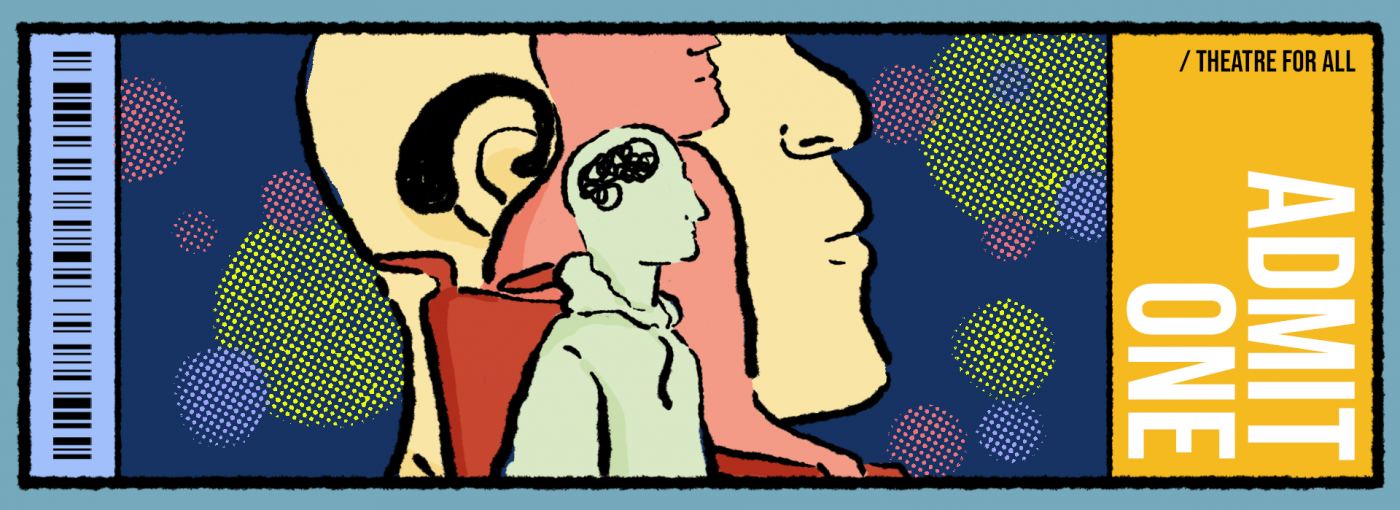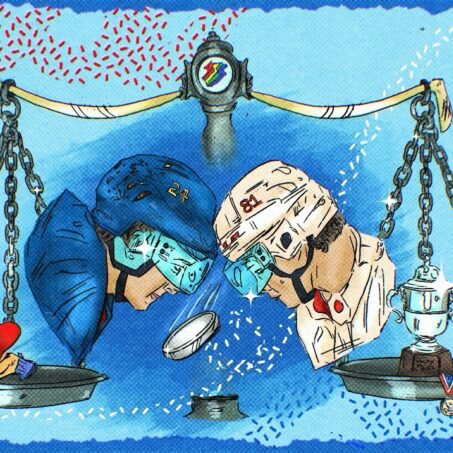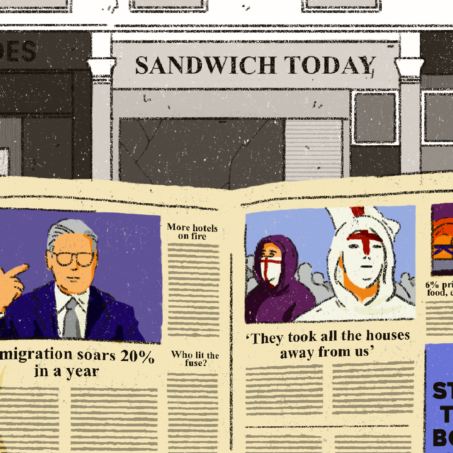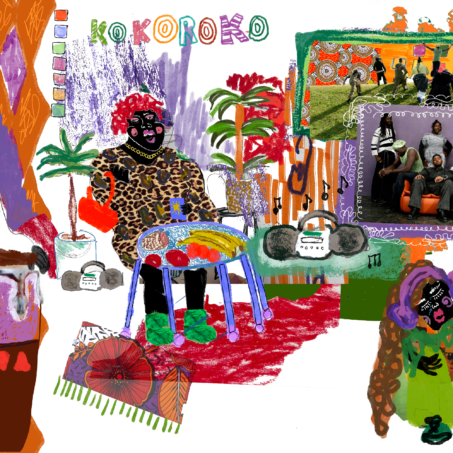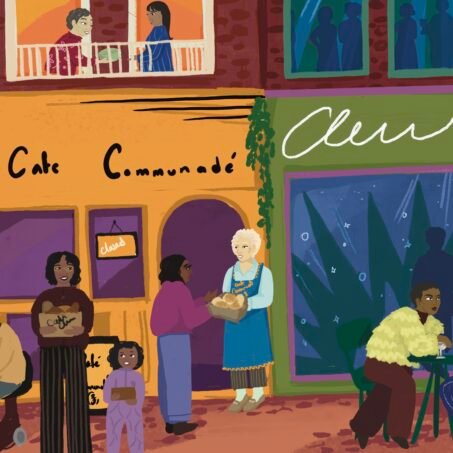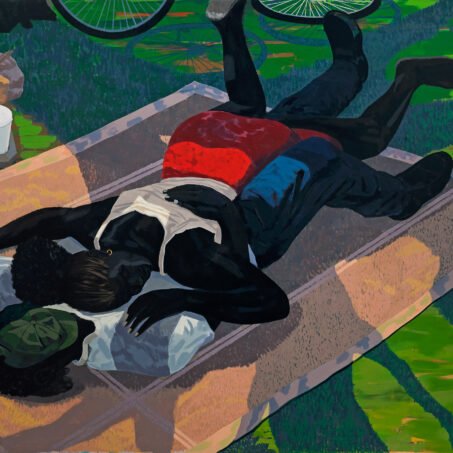Last month, I was preparing for an upcoming audition with my teacher Georgia. When we got to the topic of how I’d introduce myself, she said, ‘You’re an actor-vist!’, coining a word that perfectly marries two core parts of my identity: my career as a performer and my role as a climate justice activist and policy writer.
The more I’ve thought about it, the more I have been drawn to the conclusion that these dual causes aren’t actually as separate as I once thought. To explore this idea further, I sat down with some cast members from a production that uses its platform to create social change – the 10th Anniversary Tour of The Curious Incident of the Dog in the Night-Time.
The play follows the story of 15-year-old neurodiverse Christopher Boone (who, though it is not explicitly said in the script, is widely regarded as autistic) and his investigation into how his neighbour’s dog was killed. Through the course of his investigation, he uncovers secrets that take him on a life changing journey.
Changing the narrative in theatre
Connor Curren, who plays Christopher, explains, “To me, The Curious Incident of the Dog in the Night-Time is about people trying to understand each other and kind of failing, but continuing anyway because they really love each other. I think that’s what’s beautiful about this show.”
What I love about theatre is that I can become someone else, whether I’m performing in something myself or watching someone else do so. Through drama, we get to see characters and people navigating difficult things, often things that will resonate with us in one way or another and that challenges our outlook.
Connor adds, ‘’Theatre gives people a different perspective; it educates people in a way that a textbook never could. It changes people’s minds and therefore changes their behaviour and how they act. That’s then passed down from generation to generation, and that’s how it creates sustainable social change.’’
“Autism isn’t often portrayed in theatre and people don’t often see autistic actors on stage either. So, having this representation available in the show means people can look at Christopher and see how beautiful his mind is, rather than seeing autism in a negative light. Being autistic myself and playing him hopefully shows people that acting is a job autistic people can do too – and dispels the myth that we have to be restricted to certain jobs that people think we ‘should’ be doing. Lots of people say they resonate with the show, and if you can connect with people and open their minds like that, you’ve done a good job, and you’re making change.”
Representation politics
But it’s not just Connor who feels this way. The composition of the cast is something that every actor I spoke to brought up. It is made up of people of colour, members of the LGBTQI+ community, people from working-class backgrounds, and disabled and neurodivergent people.
Importantly though, the characters are not reduced to caricatures, as we still so often see on stage. There’s no tokenisation or outdated stereotypes attached; it’s just actors acting, with their rich backgrounds bringing an important dimension to the characters they play. Whether that’s Deaf actor Sophie Stone portraying Judy (Christopher’s mother) as being Deaf, or Connor using his own experiences of autism to inform how he plays Christopher, the show benefits from the makeup of its company and the experiences they bring with them.
Theatre is yet to reflect its audience
But whilst the cast is diverse, the same can’t always be said of the audiences, as Siu-See Hung, who plays multiple characters in the show, explains:
“There is definitely a role for theatre as a tool for social change, but the tricky thing is that it tends to only reach a particular demographic… Sometimes, that can be disheartening because you’re either A) talking about social change into an echo chamber or B) playing to people who are too privileged to relate to the issues in the play and therefore enact meaningful change.’’
As a frequent theatre-goer myself, this is something that I have noticed time and time again too. Whilst I’ve seen some progress being made towards having more diverse casts onstage, I haven’t seen a decrease in how often I end up being the only person of colour or teenager in the audience. It’s clear that for theatre to result in true social change, it must reach people outside its current primary demographic, which tends to be well-off older people. We can’t achieve this without changing who we make theatre for and how we work towards making sure those people can access it.
Whilst this is the case for arguably the majority of current theatre, I haven’t had the same experience at Curious Incident – and Siu-See agrees:
‘’But with The Curious Incident of the Dog in the Night-Time, I feel it’s different. As it’s part of the school curriculum, we get to reach many young people who are part of the global majority, or who aren’t straight or aren’t hearing or who are neurodiverse.
So, through our casting, I think our production can make quite a bit of social change. I think people can come to our show, learn about Christopher and the people in his life, and leave with more empathy and new consideration for people. It’s definitely social change on an individual level, and that builds up.”
What do we need to change to make theatre more accessible?
There are undoubtedly wider problems of accessibility – particularly financial – which The Curious Incident of the Dog in the Night-Time also goes some way to breaking down. The National Theatre operated a weekly £10 ticket lottery which this show was often included in when it played at the Wembley Troubadour, and discounted rates are also offered for school groups. However, structural barriers persist.
Theatre as a whole remains widely unaffordable for many, with tickets usually starting at around £25. Whilst some productions such as those in the National Theatre, Cabaret and Hamilton run £10 ticket lotteries, these are only for London based productions meaning that those outside of the capital can’t benefit from these offers or would have to foot a hefty travel bill to do so.
Many theatres don’t have disabled toilets or adequate wheelchair spaces, and there is also a significant and widespread lack of captioned, BSL interpreted, audio described and relaxed performances, with most shows only offering a handful of accommodated performances a year, which further restricts access to people who need these services in order to watch theatre. Some shows, like the Birmingham Rep’s ‘Coming to England’ are now captioning their entire run in a bid to improve accessibility, but until more theatres and productions follow, theatre will remain hard to access for disabled people.
If large parts of the population aren’t able to even enter theatres because of financial or accessibility reasons, or have to struggle immensely to do so, can we truly consider theatre revolutionary? Or does theatre go beyond staged productions?
Sophie Stone, who plays the role of Judy, answers:

Join our mailing list
Sign up for shado's picks of the week! Dropping in your inbox every Friday, we share news from inside shado + out, plus job listings, event recommendations and actions ✊
Sign up for shado's picks of the week! Dropping in your inbox every Friday, we share news from inside shado + out, plus job listings, event recommendations and actions ✊
“There is theatre in protest. People coming together, reciting chants and marching towards a destination where a speaker will often perform a monologue – that is theatre.’’
Theatre is about challenging limits and redefining how we view things in order to get a message across. It is about working with other people to communicate something important, with the aim being to challenge people’s perceptions of the world around them. Anything that encompasses these characteristics therefore constitutes theatre, and that includes protest, where we rally together through music and speeches and marches to change the minds of governments.
Theatre imitating life
‘’Theatre doesn’t have to be explicitly political to enact social change. “In theatre, we’re just holding up a mirror and saying, ‘this is what’s happening.’ I think that’s the most radical thing you can do sometimes.” Sophie also explains that these radical themes can often just be packaged as entertainment. “Sometimes, it’s only when audiences start walking away from the theatre that they start to internally unpack what the play has brought up. They start questioning: Am I really like that? What can I do to be better? What can I change? And this show is an example of that.”
Siu-See echoes that the rallying calls of theatre will always find those who need to hear them: “The last line of the play is: ‘Does that mean I can do anything?’ and I hope that anyone watching who is trans, or is a person of colour, or is deaf, Deaf or hard of hearing, or is autistic or marginalised in another way can answer ‘yes’ – because they can look at us up there on stage and see that we’re doing it, so they can too.’
Sophie adds: “If you believe Christopher can do anything, you have to interrogate whether you yourself constructively contribute to society that allows people who are less privileged to thrive. The play shows you just how many obstacles there are in place for disabled people in society. So if you believe Christopher can do anything, you need to come away from the show paving the way forward to a world where he actually can.”
Down to its core, The Curious Incident of the Dog in the Night-Time is a powerful play with a brilliant cast and it’s clear that it has touched many people. It has also contributed to social change, whether that’s by voicing the story of someone from a demographic that typically goes unheard or providing powerful representation and role models. To me, it represents everything that is wonderful about theatre.
The Curious Incident of the Dog In The Night-Time is playing at theatres across the country. For more information and booking details, visit https://www.curiousonstage.com/.
What can you do?
- Read ‘Theatre of The Oppressed’ by Augusto Boal
- Read plays such as:
- Support or Join BP or Not BP, a network of people who are working to get theatre and the arts to divest from fossil fuels
- Listen to the ‘Theatre for Good’ Podcast
- Watch as much theatre as you can, whether in person or online through streaming services like National Theatre at Home
- Follow @SophieLStone, @SamJKnights, @theLizCarr, @drop_BP, @freedom_theatre and @Tshisimani
- Get together with friends and make up your own performance communicating something important to you!


